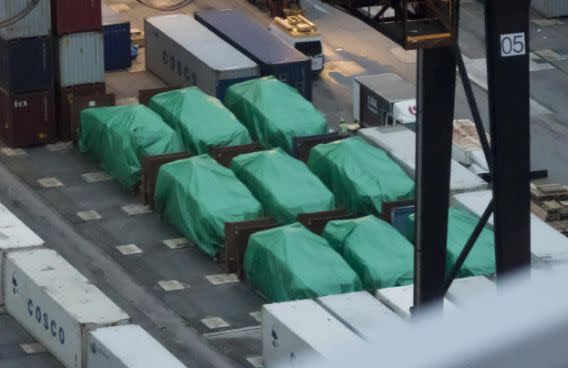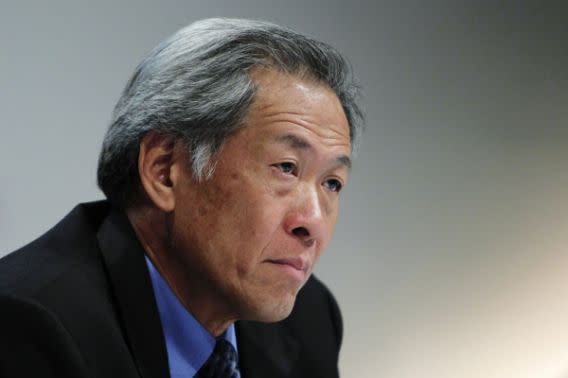COMMENT: Let us not fool ourselves about China

Did Singapore’s Ministry of Defence miss a beat in not predicting the possibility of its military assets being detained by the proxy of China, Hongkong? It appears that Mindef failed to read the geopolitical tea leaves.
The media didn’t highlight it, the Opposition didn’t pounce on it. The result: we have become poorer as an opportunity was missed to discuss an issue of utmost importance in a world where China is showing its clout overtly and covertly.
Regardless of Singapore’s long-standing relations with the Middle Kingdom, let us not fool ourselves about China. The latter had already shown its displeasure, directly and indirectly, over the former’s stand on China’s ambitions regarding the South China Sea.
The chain of events
It kicked off last July when a tribunal at The Hague ruled on the case brought up by the Philippines, rejecting China’s argument that it holds historic rights over much of the South China Sea. Singapore took a highly-nuanced stand on the verdict. But in all that diplomatic speak, its position was clear: respect the rule of law.
The high-profile tiff that followed in September between The Global Times, widely seen as a mouthpiece of the Chinese Communist Party, and Singapore’s ambassador to China Stanley Loh should have alerted the authorities here of trouble brewing.
The English-language newspaper accused Singapore of lobbying the Non-Aligned Movement to include a clause supporting The Hague verdict, in the final declaration of its Venezuela meeting. This was strongly denied by Loh.
Just a month later, Singapore was attacked by a director of the People’s Liberation Army’s National Defence University, who said the Republic was actively pushing to politicise Beijing’s stand on the South China Sea and turn it into an international issue.
Prime Minister Lee Hsien Loong’s decision to accept an invitation to attend a rare White House dinner in August was seen by China as another move by the Singapore government to move closer to the United States.
Finally, the coming to power of a party in Taiwan with the clear intention of distancing itself from China added to the simmering pot of tension.
Parliamentary statement

On Monday (9 January), when Defence Minister Ng Eng Hen stood up to answer questions in Parliament on Hong Kong’s detention of nine Terrex Infantry Fighting Vehicles (IFV) on the way home after a military training exercise in Taiwan, the key messages were clear: the detention was illegal, Singapore always plays by international and legal rules and that Mindef will update its protocols in moving military hardware, even if it has to spend millions of dollars to use its own aircraft and not those of some commercial shipping line.
Hidden in that last point is an admission of Mindef’s inability to read deeper into China’s intentions, which include using a proxy territory to strike on its behalf and behest.
Mindef is no ordinary ministry. Flush with money and other resources, it has always tried to be one step ahead of the game when it comes to military defence. In the case of the Terrexes, it failed to read the radar signals, however blurred they were, with the sharp antenna that this smart and state-of-the art ministry obviously possesses.
Expect China to squeeze this issue dry to get maximum advantage out of it. The Parliamentary session, ostensibly held to explain to Singaporeans what happened and what is at stake, is likely to make the Chinese even more stubborn.
This is a testing time for Singapore’s diplomats. Speaking to the House after Ng, Foreign Minister Vivian Balakrishnan tried to appease the elephant in the room when he repeatedly said that Singapore stands by the one-China policy.
All that is academic to the Chinese. In all likelihood, they will continue to drag the crisis out for a while before releasing the equipment eventually.
Meanwhile, the time has come for a serious review of Singapore’s art of diplomacy, which has worked very well all this while, so that we are not caught in another sticky situation.
P N Balji is a veteran Singaporean journalist was formerly chief editor of Today, as well as an editor at The New Paper, and currently a media consultant. The views expressed are his own.


